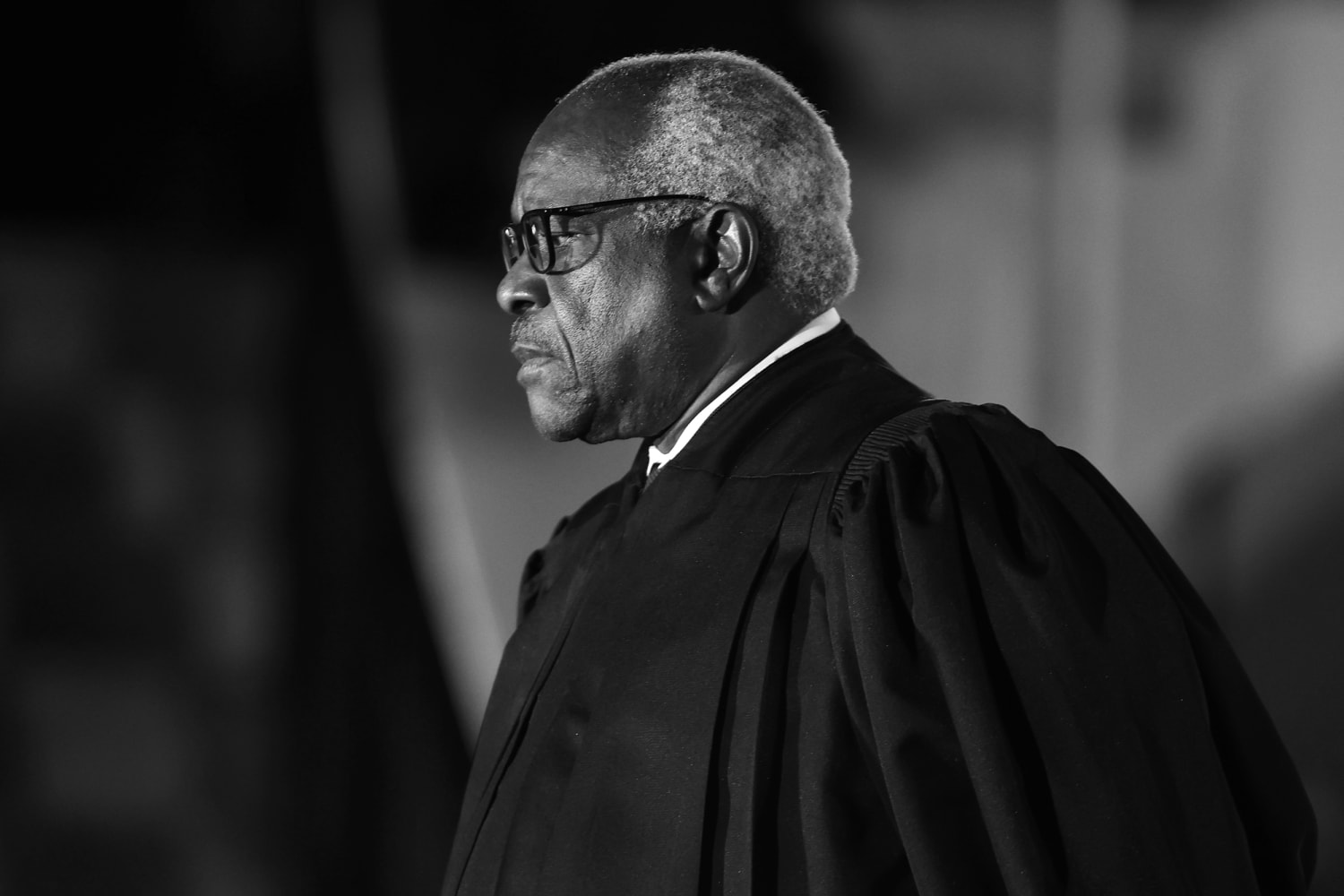The Supreme Court should take another look at whether federal law grants social media sites like Facebook broad legal immunity when they are used to commit crimes, Justice Clarence Thomas said Monday.
Thomas’ comments came as the court declined to take up an appeal from a Texas woman who was friended when she was 15 years old by a man on Facebook who turned out to be a sex trafficker. After the then-teenager told him she had an argument with her mother, he told her she could make enough money as a model to have an apartment of her own, according to her lawsuit.
He convinced her to let him pick her up, and within hours, she was raped, beaten, photographed, and forced into sex trafficking. Facebook should have realized he was a criminal, her lawsuit contended, because his posting was full of photos and other content that were clear signs of human trafficking.
After she was rescued by law enforcement, she sued Facebook, but the Texas Supreme Court said a provision of a federal law, known as Section 230 of the Communications Decency Act, gives social media sites and other internet providers immunity from lawsuits that arise from something posted by a user.
Thomas said that interpretation of the law is too broad and goes beyond what the statute actually says. Such an expansive reading, he said, results in courts dismissing claims against internet companies for failing to warn consumers of product defects or failing to take reasonable steps to protect users from the malicious activities of other users.
Thomas said it is hard to see why the law “should protect Facebook from liability for its own acts and omissions.”
The Supreme Court on Monday declined to take up the Texas woman’s appeal, citing technical obstacles that prevented the court from having jurisdiction, and Thomas agreed the court should not have taken her specific case. But he said it “should address the proper scope of immunity” in an appropriate case.
Thomas has made similar comments in past cases and has also said social media companies should not be immune from lawsuits that argue they improperly restrict conservative viewpoints.
Facebook urged the court not to take the Texas case. In the 25 years since Congress enacted the law, “federal courts of appeals and state supreme courts have uniformly held that section 230 bars claims seeking to impose liability on interactive computer service providers for third-party content,” the company said.
Source: | This article originally belongs to Nbcnews.com












